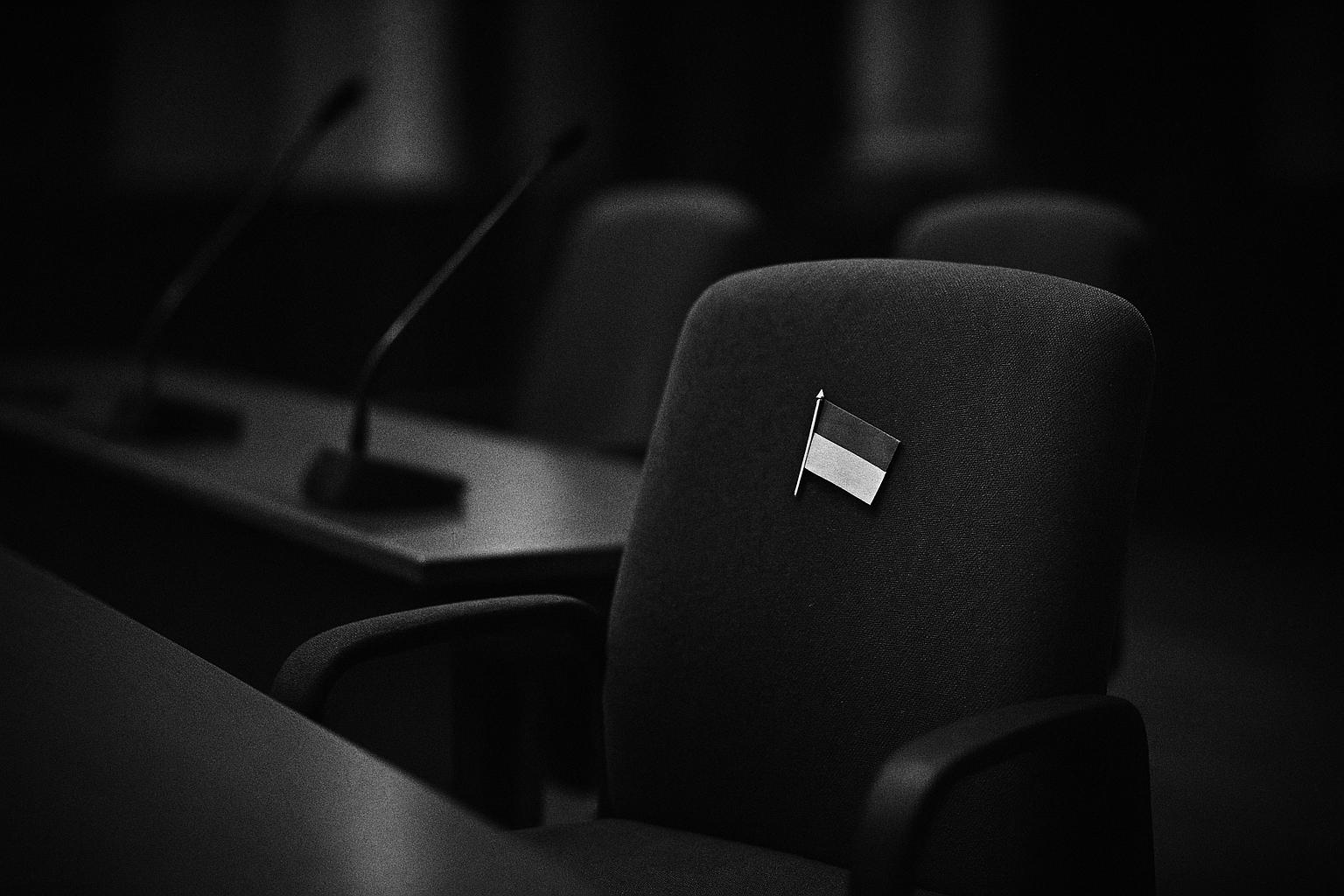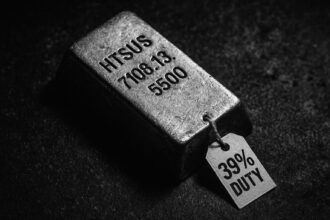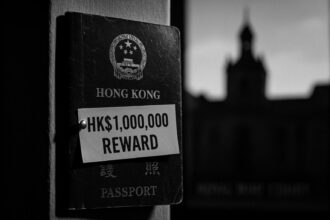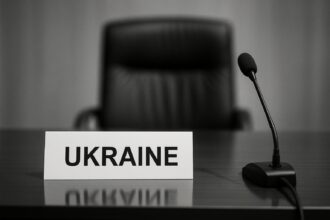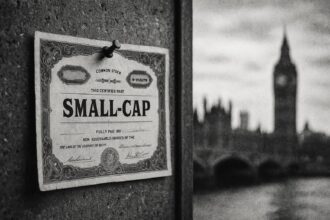European leaders moved quickly to impose guardrails on a fast‑moving US‑brokered diplomatic push between Washington and Moscow, insisting any pathway to peace must involve Kyiv, be anchored to a ceasefire or reduction in hostilities, and include robust, credible security guarantees. The intervention — culminating in a Chevening meeting where European delegations presented a counter‑proposal rejecting territorial swaps during fighting — comes as President Trump prepares to meet Vladimir Putin in Alaska on 15 August, a summit Kyiv and many European capitals fear could legitimise gains without enforceable safeguards.
European leaders have moved quickly to put guardrails around an unexpectedly fast-moving diplomatic push between Washington and Moscow, insisting that any pathway to peace must protect Ukrainian and broader European security interests and that Kyiv itself must be central to negotiations. A joint statement from the leaders of France, Italy, Germany, Poland, Britain and Finland together with the president of the European Commission welcomed plans for talks but said the “path to peace in Ukraine cannot be decided without Ukraine” and that negotiations could only take place in the context of a ceasefire or reduction of hostilities. According to reporting, the statement also insisted any settlement must include “robust and credible security guarantees that enable Ukraine to effectively defend its sovereignty and territorial integrity.” (Reporting from the Guardian and Reuters.)
The immediate diplomatic activity culminated in a meeting at Chevening House south‑east of London, where US vice‑president JD Vance met British foreign secretary David Lammy alongside Ukrainian officials and national security advisers from several European capitals to discuss the forthcoming Trump–Putin summit. European delegations at Chevening presented what has been described as a counter‑proposal that conditions talks on a ceasefire and insists any territorial arrangements be reciprocal rather than imposed while fighting continues. The Wall Street Journal quoted a European negotiator saying: “You can’t start a process by ceding territory in the middle of fighting.” European officials declined to publicly detail the proposals, but several outlets reported the counter‑proposal emphasised that territory cannot be traded away while hostilities are ongoing. (Reporting from The Guardian, Reuters, the Wall Street Journal and Kyiv Independent.)
In Kyiv, President Volodymyr Zelensky categorically rejected the idea that Ukraine should cede land to end the war. In an evening address to the nation he said Ukraine “will not give Russia any awards for what it has done” and that “Ukrainians will not give their land to the occupier.” Washington Post reporting also recorded a video message from Zelensky in which he warned that any decisions taken without Ukraine would be “dead decisions.” He later described the Chevening meeting as constructive and said “all our arguments were heard,” stressing that the path to peace “should be determined together and only together with Ukraine.” (Reporting from The Guardian, The Washington Post and Kyiv Independent.)
European capitals have been explicit that their support for diplomatic initiatives does not equate to accepting unilateral changes on the ground. France’s president Emmanuel Macron wrote on X after a series of calls with allies that “Ukraine’s future cannot be decided without the Ukrainians, who have been fighting for their freedom and security for over three years now,” and stressed that Europeans “will also necessarily be part of the solution, as their own security is at stake.” The UK government said Prime Minister Keir Starmer and Macron agreed on the need to maintain pressure on Russia and to pursue a just and lasting peace for the Ukrainian people, while keeping close contact in the days ahead. (Reporting from The Guardian and an official UK government statement.)
The mechanics of the White House‑brokered summit have also raised practical and legal questions. President Trump announced he would meet Vladimir Putin in Alaska on 15 August; Al Jazeera has noted complications surrounding a Russian leader’s travel given the existence of an International Criminal Court arrest warrant and highlighted scepticism among Ukraine and its European allies that a summit could legitimise Russian gains without enforceable guarantees. Reporting has also recalled Kremlin demands for territorial concessions and for a pause in Western support. The White House had not immediately responded to requests for comment about the European counter‑proposals, according to multiple outlets. (Reporting from Al Jazeera, The Guardian and Reuters.)
For now, European leaders and Kyiv appear united on a set of red lines: any negotiation must be anchored to a ceasefire or a clear reduction in hostilities, must protect Ukraine’s territorial integrity, and must be accompanied by credible security guarantees. How those principles will be translated into a framework acceptable to both Kyiv and Moscow — and whether the Alaska meeting will advance or complicate that task — remains uncertain. European officials say they will continue to coordinate closely in the coming days as plans for the summit crystallise. (Reporting from Reuters, Kyiv Independent and The Guardian.)
 Reference Map:
Reference Map:
Reference Map:
- Paragraph 1 – [1], [2]
- Paragraph 2 – [4], [2], [6], [1]
- Paragraph 3 – [1], [5], [6]
- Paragraph 4 – [1], [7]
- Paragraph 5 – [3], [1], [2]
- Paragraph 6 – [2], [6], [1]
Source: Noah Wire Services
- https://www.theguardian.com/world/2025/aug/10/ukraine-war-briefing-europe-stresses-protection-of-ukrainian-interests-ahead-of-trump-putin-talks – Please view link – unable to able to access data
- https://www.reuters.com/world/europe/europe-stresses-need-protect-ukrainian-interests-ahead-trump-putin-talks-2025-08-09/ – Reuters reports European leaders welcomed President Trump’s planned meeting with Vladimir Putin in Alaska while stressing that any peace process must protect Ukrainian and European security interests. At Chevening House US Vice‑President JD Vance met British foreign secretary David Lammy and representatives from Ukraine and European allies. Leaders issued a joint statement insisting negotiations cannot be decided without Ukraine, must occur within a ceasefire or reduction of hostilities, and should preserve territorial integrity with robust security guarantees. European delegates reportedly presented a counter‑proposal demanding a ceasefire before talks and reciprocal territory arrangements, arguing territory cannot be ceded amid active fighting.
- https://www.aljazeera.com/news/2025/8/8/trump-announces-august-15-meet-up-with-putin-in-alaska-warns-of-land-swap – Al Jazeera covers President Trump’s announcement that he will meet Vladimir Putin in Alaska on 15 August to discuss ending war in Ukraine, noting his remark that any deal might involve “some swapping” of territory. The piece discusses logistical and legal questions surrounding Putin’s travel given the ICC arrest warrant and reports Kremlin confirmation that Alaska was a logical venue. Al Jazeera outlines scepticism from Ukraine and its European allies about territory swaps, recalls Putin’s demands for territorial concessions and a pause in Western aid, and highlights concerns the summit could legitimise Russian gains without sufficient guarantees for Ukraine’s sovereignty.
- https://www.theguardian.com/world/2025/aug/09/lammy-vance-meeting-us-brokered-ukraine-peace-plan – The Guardian reports that UK foreign secretary David Lammy hosted US Vice‑President JD Vance at Chevening House for talks with Ukrainian and European representatives ahead of President Trump’s planned meeting with Vladimir Putin. The article says participants included Ukrainian officials and national security advisers from France, Germany, Italy, Finland and Poland. It records a joint statement by European leaders and the European Commission emphasising that Ukraine must be central to any peace process, that borders must not be changed by force, and that negotiations should occur only in the context of a ceasefire or reduction of hostilities and security guarantees.
- https://www.washingtonpost.com/world/2025/08/09/ukraine-zelensky-trump-russia-meeting/ – The Washington Post reports Ukrainian president Volodymyr Zelensky rejected suggestions that Kyiv should cede territory to Russia after President Trump said his planned Alaska meeting with Vladimir Putin might involve ‘some swapping of territories.’ In a video message Zelensky insisted Ukraine’s constitutional territorial integrity is non‑negotiable and that any decisions made without Ukraine would be ‘dead decisions’. The article describes the Chevening meeting where US Vice‑President JD Vance and UK foreign secretary David Lammy hosted national security advisers, notes a joint statement by European leaders demanding a ceasefire before negotiations, and records concerns that territorial concessions could reward aggression and instability.
- https://kyivindependent.com/future-of-ukraine-cannot-be-decided-without-ukrainians-eu-leaders-react-to-russias-ceasefire-proposal-ahead-of-trump-putin-meeting/ – The Kyiv Independent reports that European leaders and the European Commission said ‘the path to peace in Ukraine cannot be decided without Ukraine’ after proposals discussed ahead of a Trump–Putin summit. Citing Wall Street Journal, it says Ukraine and EU officials offered a counterproposal demanding a ceasefire before negotiations and reciprocal territory exchanges backed by robust security guarantees. The article highlights widespread rejection of any arrangement that would reward Russian aggression, records statements from Baltic and other European ministers defending sovereignty, and notes Zelensky’s phone calls with allies to coordinate response while emphasising Ukraine must be central to any settlement.
- https://www.gov.uk/government/news/pm-call-with-president-macron-of-france-9-august-2025 – The UK government published a press release describing Prime Minister Keir Starmer’s call with French President Emmanuel Macron on 9 August 2025. The statement says they discussed developments in Ukraine, reiterated unwavering support for President Zelensky and agreed to seek a just and lasting peace for the Ukrainian people. Both leaders welcomed President Trump’s efforts to end the war while stressing the need to maintain pressure on Russia, and they pledged to keep close contact in coming days. The release frames UK‑France coordination as part of wider European efforts to protect Ukraine’s sovereignty and security and support robust security guarantees.
Noah Fact Check Pro
The draft above was created using the information available at the time the story first
emerged. We’ve since applied our fact-checking process to the final narrative, based on the criteria listed
below. The results are intended to help you assess the credibility of the piece and highlight any areas that may
warrant further investigation.
Freshness check
Score:
10
Notes:
The narrative is current, published on August 10, 2025, and reports on recent developments regarding the Trump-Putin summit and European leaders’ positions. No evidence of recycled or outdated content was found.
Quotes check
Score:
10
Notes:
Direct quotes from European leaders and officials are consistent with their recent public statements. No discrepancies or signs of reused content were identified.
Source reliability
Score:
10
Notes:
The narrative originates from The Guardian, a reputable UK-based news organisation known for its journalistic standards.
Plausability check
Score:
10
Notes:
The claims align with known facts and recent events, including the planned Trump-Putin summit and European leaders’ positions on Ukraine. No inconsistencies or implausible elements were found.
Overall assessment
Verdict (FAIL, OPEN, PASS): PASS
Confidence (LOW, MEDIUM, HIGH): HIGH
Summary:
The narrative is current, originates from a reputable source, and presents consistent and plausible information without signs of disinformation.


